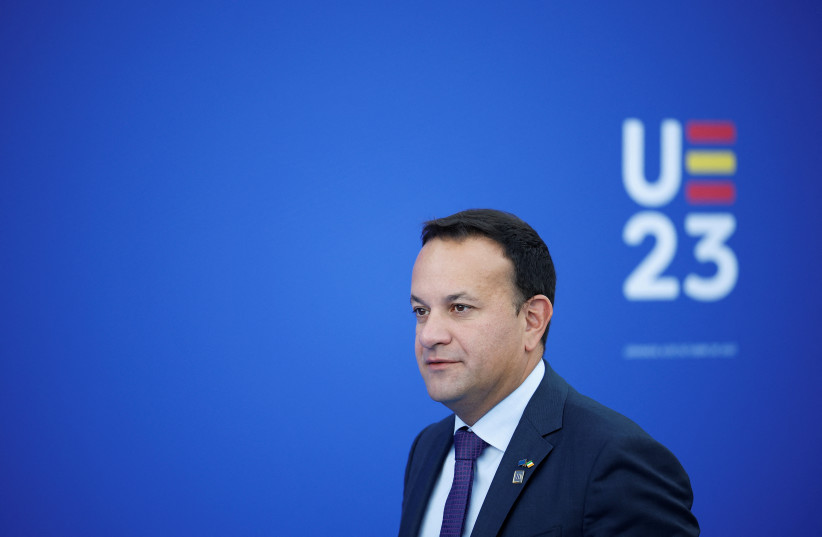Irish Prime Minister Leo Varadkar incurred the wrath of Israel and its supporters when he welcomed the release on Saturday of nine-year-old Israeli Irish hostage Emily Hand, posting on X that “an innocent child who was lost has now been found.”
The full post reads as follows: “This is a day of enormous joy and relief for Emily Hand and her family. An innocent child who was lost has now been found and returned, and we breathe a massive sigh of relief. Our prayers have been answered.”
The post neglected to mention that Emily had been released in a prisoner exchange after being held hostage for 50 days in Gaza by Hamas terrorists following her abduction from Kibbutz Be’eri – after a sleepover with her friend – during the October 7 massacre.
Responding Sunday on X (formerly Twitter), Foreign Minister Eli Cohen wrote directly to Varadkar: “It seems you have lost your moral compass and need a reality check!”
War cabinet minister Benny Gantz noted on the platform, “After 50 days held hostage in Gaza and while celebrating her 9th birthday surrounded by Hamas terrorists armed with Kalashnikovs and knives, after her father mourned her loss in front of the whole world, her father will now need to tell Emily that her stepmother was murdered by those same Hamas terrorists only six years after losing her biological mother to cancer.”

PM's "lost" comment represents the rule, not the exception
Irish Jewish Voice, representing the estimated 2,500 Jews among 5.3 million Irish citizens, also condemned Varadkar’s post, saying, “Emily Hand was not ‘lost’ or mislaid. This is not an Oscar Wilde play. Emily was cruelly abducted by Hamas terrorists. Israeli pressure brought her home.”
In wake of the huge backlash from the post, X even added a section to it that allows readers to provide context, stating clearly that “using the terms ‘lost’ and ‘found’ is misleading.”
What is troubling is that the Irish premier’s post corresponds with his country’s longtime and highly problematic position.
While leaders from the European Union, the United Kingdom, and the United States have voiced support for Israel’s right to defend itself, Varadkar said early on in the war that although it has a right to defend itself, “Israel doesn’t have the right to do wrong,“ adding: “To me, [Israel’s military campaign] amounts to collective punishment.”
On November 3, he described Israel’s military response to Hamas’s October 7 attack as “something approaching revenge.”
“That’s not where we should be,” Varadkar told journalists during a visit to South Korea. “And I don’t think that’s how Israel will guarantee future freedom and future security.”
Una Mullally, a columnist for the Irish Times, sought to explain Ireland’s position in The Guardian.
“Because of our history, many people are drawn to support those they perceive as oppressed, with marginalized national identities, especially within the frameworks of imperialism and colonialism,” she wrote. “Israeli diplomats have long viewed Ireland as the least sympathetic nation in Europe to their cause. The past few weeks suggest that reputation isn’t changing soon.”
Mullally pointed out that one of the factors is “the question of how this plays with Sinn Féin, which is explicitly pro-Palestine and is widely predicted to become the largest party in government after the next general election.”
She said the party is a strong supporter of the BDS movement and that the current X profile of its leader, Mary Lou McDonald, features a Palestinian rather than an Irish flag.
McDonald, incidentally, welcomed Emily’s release in a more sympathetic fashion than Varadkar, even though she reiterated her demand for a full ceasefire. “The trauma and heartbreak that little Emily and her family have been subjected to over the last number of weeks is unimaginable,” she said. “I reiterate my call that all hostages be released urgently and for an immediate full ceasefire to be in place.”
Perhaps the Irish leadership should be reminded of this quotation by Oscar Wilde: “Never let your sense of morals prevent you from doing what is right.”
